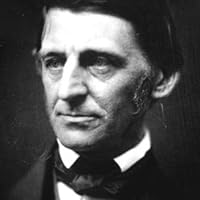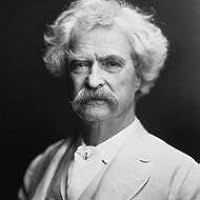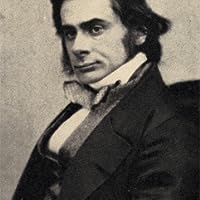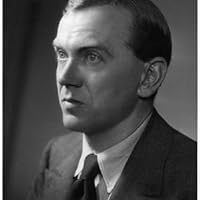William Shakespeare Quotes
Quotes tagged as "william-shakespeare"
Showing 1-30 of 190

“Men at some time are masters of their fates. The fault, dear Brutus, is not in our stars, but in ourselves, that we are underlings.”
― Julius Caesar
― Julius Caesar

“Some are born mad, some achieve madness, and some have madness thrust upon 'em.”
― The Asylum for Wayward Victorian Girls
― The Asylum for Wayward Victorian Girls

“Where shall we three meet again in thunder, lightning, or in rain? When the hurlyburly 's done, when the battle 's lost and won”
― Macbeth
― Macbeth

“Why should we place Christ at the top and summit of the human race? Was he kinder, more forgiving, more self-sacrificing than Buddha? Was he wiser, did he meet death with more perfect calmness, than Socrates? Was he more patient, more charitable, than Epictetus? Was he a greater philosopher, a deeper thinker, than Epicurus? In what respect was he the superior of Zoroaster? Was he gentler than Lao-tsze, more universal than Confucius? Were his ideas of human rights and duties superior to those of Zeno? Did he express grander truths than Cicero? Was his mind subtler than Spinoza’s? Was his brain equal to Kepler’s or Newton’s? Was he grander in death – a sublimer martyr than Bruno? Was he in intelligence, in the force and beauty of expression, in breadth and scope of thought, in wealth of illustration, in aptness of comparison, in knowledge of the human brain and heart, of all passions, hopes and fears, the equal of Shakespeare, the greatest of the human race?”
― About The Holy Bible
― About The Holy Bible

“This goodly frame, the earth, seems to me a sterile promontory, this most excellent canopy, the air, look you, this brave o'erhanging firmament, this majestical roof fretted with golden fire, why, it appears no other thing to me than a foul and pestilent congregation of vapours. What a piece of work is a man! how noble in reason! how infinite in faculty! in form and moving how express and admirable! in action how like an angel! in apprehension how like a god! the beauty of the world! the paragon of animals! And yet, to me, what is this quintessence of dust?”
― Hamlet
― Hamlet

“What needs my Shakespeare for his honoured bones,
The labor of an age in pilèd stones,
Or that his hallowed relics should be hid
Under a star-y-pointing pyramid?
Dear son of memory, great heir of fame,
What need'st thou such weak witness of thy name?”
― The Complete Poetry
The labor of an age in pilèd stones,
Or that his hallowed relics should be hid
Under a star-y-pointing pyramid?
Dear son of memory, great heir of fame,
What need'st thou such weak witness of thy name?”
― The Complete Poetry

“The sweetest honey is loathsome in its own deliciousness. And in the taste destroys the appetite. Therefore, love moderately.”
― Romeo and Juliet
― Romeo and Juliet

“Well, in that hit you miss. She'll not be hit
With Cupid's arrow. She hath Dian's wit,
And, in strong proff of chastity well armed,
From Love's weak childish bow she lives uncharmed.
She will not stay the siege of loving terms,
Nor bide th' encounter of assailing eyes,
Nor ope her lap to saint-seducing gold.
O, she is rich in beauty; only poor
That, when she dies, with dies her store.
Act 1,Scene 1, lines 180-197”
― Romeo and Juliet
With Cupid's arrow. She hath Dian's wit,
And, in strong proff of chastity well armed,
From Love's weak childish bow she lives uncharmed.
She will not stay the siege of loving terms,
Nor bide th' encounter of assailing eyes,
Nor ope her lap to saint-seducing gold.
O, she is rich in beauty; only poor
That, when she dies, with dies her store.
Act 1,Scene 1, lines 180-197”
― Romeo and Juliet

“Not like Homer would I write,
Not like Dante if I might,
Not like Shakespeare at his best,
Not like Goethe or the rest,
Like myself, however small,
Like myself, or not at all.”
― Blackberries
Not like Dante if I might,
Not like Shakespeare at his best,
Not like Goethe or the rest,
Like myself, however small,
Like myself, or not at all.”
― Blackberries

“How sweet the moonlight sleeps upon this bank!
Here will we sit and let the sounds of music
Creep in our ears: soft stillness and the night
Become the touches of sweet harmony.
Sit, Jessica. Look how the floor of heaven
Is thick inlaid with patines of bright gold:
There's not the smallest orb which thou behold'st
But in his motion like an angel sings,
Still quiring to the young-eyed cherubins;
Such harmony is in immortal souls;
But whilst this muddy vesture of decay
Doth grossly close it in, we cannot hear it.”
― The Merchant of Venice
Here will we sit and let the sounds of music
Creep in our ears: soft stillness and the night
Become the touches of sweet harmony.
Sit, Jessica. Look how the floor of heaven
Is thick inlaid with patines of bright gold:
There's not the smallest orb which thou behold'st
But in his motion like an angel sings,
Still quiring to the young-eyed cherubins;
Such harmony is in immortal souls;
But whilst this muddy vesture of decay
Doth grossly close it in, we cannot hear it.”
― The Merchant of Venice

“O wonderful, wonderful, and most wonderful wonderful! And yet again wonderful, and after that, out of all hooping.”
― As You Like It
― As You Like It

“To move is to stir, and to be valiant is to stand; therefore, if tou art mov'd, thou runst away. (To be angry is to move, to be brave is to stand still. Therefore, if you're angry, you'll run away.)”
―
―

“The study of mathematics is apt to commence in disappointment... We are told that by its aid the stars are weighed and the billions of molecules in a drop of water are counted. Yet, like the ghost of Hamlet's father, this great science eludes the efforts of our mental weapons to grasp it.”
― An Introduction to Mathematics
― An Introduction to Mathematics

“O, pardon me, thou bleeding piece of earth, / That I am meek and gentle with these butchers!”
― Julius Caesar
― Julius Caesar

“Though those that are betray'd Do feel the treason sharply, yet the traitor stands in worse case of woe”
―
―

“A third...candidate for Shakespearean authorship was Christopher Marlowe. He was the right age (just two months older than Shakespeare), had the requisite talent, and would certainly have had ample leisure after 1593, assuming he wasn't too dead to work.”
― Shakespeare: The World as Stage
― Shakespeare: The World as Stage

“Raphael paints wisdom, Handel sings it, Phidias carves it, Shakespeare writes it, Wren builds it, Columbus sails it, Luther preaches it, Washington arms it, Watt mechanizes it.”
―
―

“Is it possible that the Pentateuch could not have been written by uninspired men? that the assistance of God was necessary to produce these books? Is it possible that Galilei ascertained the mechanical principles of 'Virtual Velocity,' the laws of falling bodies and of all motion; that Copernicus ascertained the true position of the earth and accounted for all celestial phenomena; that Kepler discovered his three laws—discoveries of such importance that the 8th of May, 1618, may be called the birth-day of modern science; that Newton gave to the world the Method of Fluxions, the Theory of Universal Gravitation, and the Decomposition of Light; that Euclid, Cavalieri, Descartes, and Leibniz, almost completed the science of mathematics; that all the discoveries in optics, hydrostatics, pneumatics and chemistry, the experiments, discoveries, and inventions of Galvani, Volta, Franklin and Morse, of Trevithick, Watt and Fulton and of all the pioneers of progress—that all this was accomplished by uninspired men, while the writer of the Pentateuch was directed and inspired by an infinite God? Is it possible that the codes of China, India, Egypt, Greece and Rome were made by man, and that the laws recorded in the Pentateuch were alone given by God? Is it possible that Æschylus and Shakespeare, Burns, and Beranger, Goethe and Schiller, and all the poets of the world, and all their wondrous tragedies and songs are but the work of men, while no intelligence except the infinite God could be the author of the Pentateuch? Is it possible that of all the books that crowd the libraries of the world, the books of science, fiction, history and song, that all save only one, have been produced by man? Is it possible that of all these, the bible only is the work of God?”
― Some Mistakes of Moses
― Some Mistakes of Moses

“I hate ingratitude more in a man
than lying, vainness, babbling, drunkenness,
or any taint of vice whose strong corruption
inhabits our frail blood".”
―
than lying, vainness, babbling, drunkenness,
or any taint of vice whose strong corruption
inhabits our frail blood".”
―

“When we set about accounting for a Napoleon or a Shakespeare or a Raphael or a Wagner or an Edison or other extraordinary person, we understand that the measure of his talent will not explain the whole result, nor even the largest part of it; no, it is the atmosphere in which the talent was cradled that explains; it is the training it received while it grew, the nurture it got from reading, study, example, the encouragement it gathered from self-recognition and recognition from the outside at each stage of its development: when we know all these details, then we know why the man was ready when his opportunity came.”
― How Nancy Jackson Married Kate Wilson and Other Tales of Rebellious Girls and Daring Young Women
― How Nancy Jackson Married Kate Wilson and Other Tales of Rebellious Girls and Daring Young Women

“So doth the greater glory dim the less:
A substitute shines brightly as a king
Unto the king be by, and then his state
Empties itself, as doth an inland brook
Into the main of waters. Music! hark!
NERISSA
It is your music, madam, of the house.
PORTIA
Nothing is good, I see, without respect:
Methinks it sounds much sweeter than by day.
NERISSA
Silence bestows that virtue on it, madam.
PORTIA
The crow doth sing as sweetly as the lark,
When neither is attended, and I think
The nightingale, if she should sing by day,
When every goose is cackling, would be thought
No better a musician than the wren.
How many things by season season'd are
To their right praise and true perfection!
Peace, ho! the moon sleeps with Endymion
And would not be awaked.
- Acte V, Scene 1”
― The Merchant of Venice
A substitute shines brightly as a king
Unto the king be by, and then his state
Empties itself, as doth an inland brook
Into the main of waters. Music! hark!
NERISSA
It is your music, madam, of the house.
PORTIA
Nothing is good, I see, without respect:
Methinks it sounds much sweeter than by day.
NERISSA
Silence bestows that virtue on it, madam.
PORTIA
The crow doth sing as sweetly as the lark,
When neither is attended, and I think
The nightingale, if she should sing by day,
When every goose is cackling, would be thought
No better a musician than the wren.
How many things by season season'd are
To their right praise and true perfection!
Peace, ho! the moon sleeps with Endymion
And would not be awaked.
- Acte V, Scene 1”
― The Merchant of Venice

“In fact a favourite problem of Tyndall is—Given the molecular forces in a mutton chop, deduce Hamlet or Faust therefrom. He is confident that the Physics of the Future will solve this easily.”
― Life and Letters of Thomas Henry Huxley — Volume 1
― Life and Letters of Thomas Henry Huxley — Volume 1

“There were occasions when Shakespeare was a very bad writer indeed. You can see how often in books of quotations. People who like quotations love meaningless generalizations.”
― Travels with My Aunt
― Travels with My Aunt
All Quotes
|
My Quotes
|
Add A Quote
Browse By Tag
- Love Quotes 97k
- Life Quotes 75.5k
- Inspirational Quotes 72.5k
- Humor Quotes 43.5k
- Philosophy Quotes 29.5k
- Inspirational Quotes Quotes 27k
- God Quotes 26k
- Truth Quotes 23.5k
- Wisdom Quotes 23.5k
- Romance Quotes 23k
- Poetry Quotes 22k
- Death Quotes 20k
- Happiness Quotes 18.5k
- Life Lessons Quotes 18.5k
- Hope Quotes 18k
- Faith Quotes 18k
- Quotes Quotes 16.5k
- Inspiration Quotes 16.5k
- Spirituality Quotes 15k
- Religion Quotes 15k
- Motivational Quotes 15k
- Writing Quotes 14.5k
- Relationships Quotes 14.5k
- Life Quotes Quotes 14k
- Love Quotes Quotes 13.5k
- Success Quotes 13.5k
- Time Quotes 12.5k
- Motivation Quotes 12k
- Science Quotes 11.5k
- Knowledge Quotes 11k


